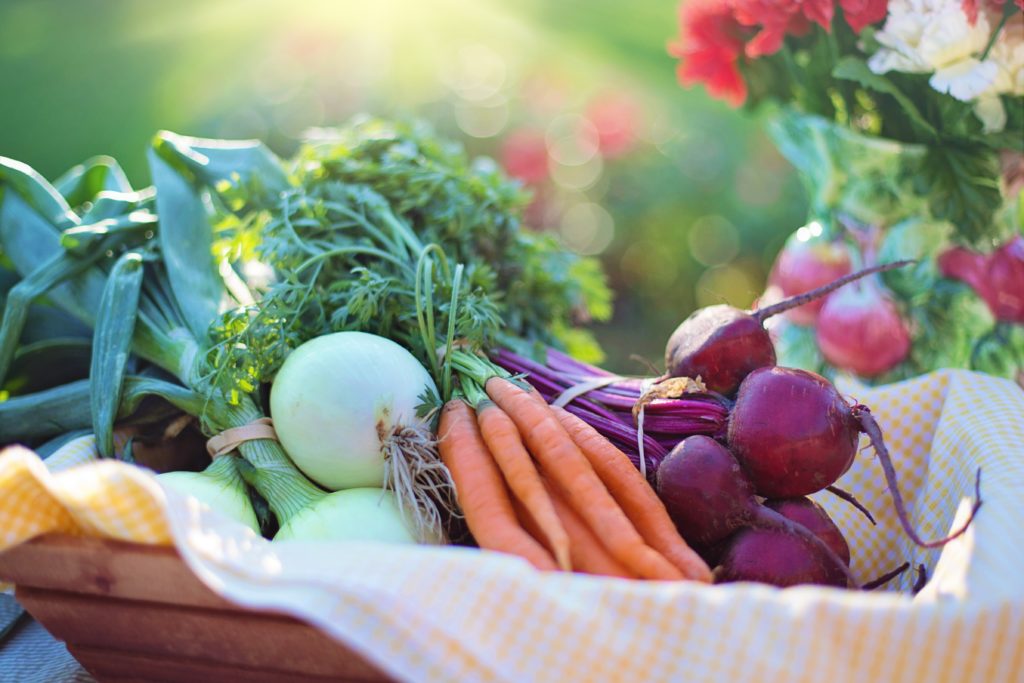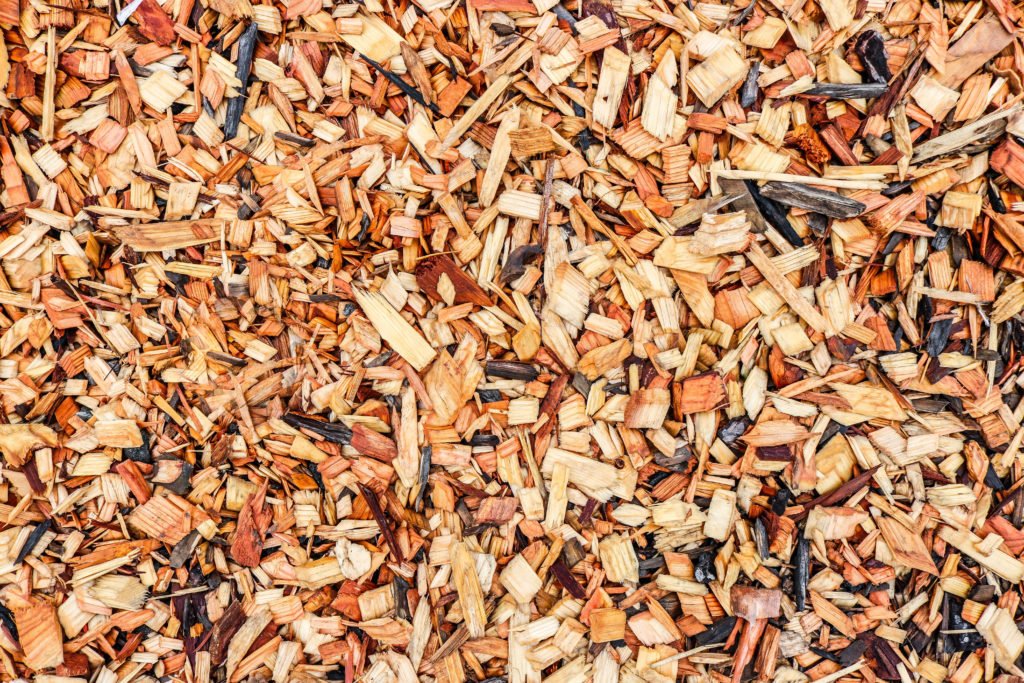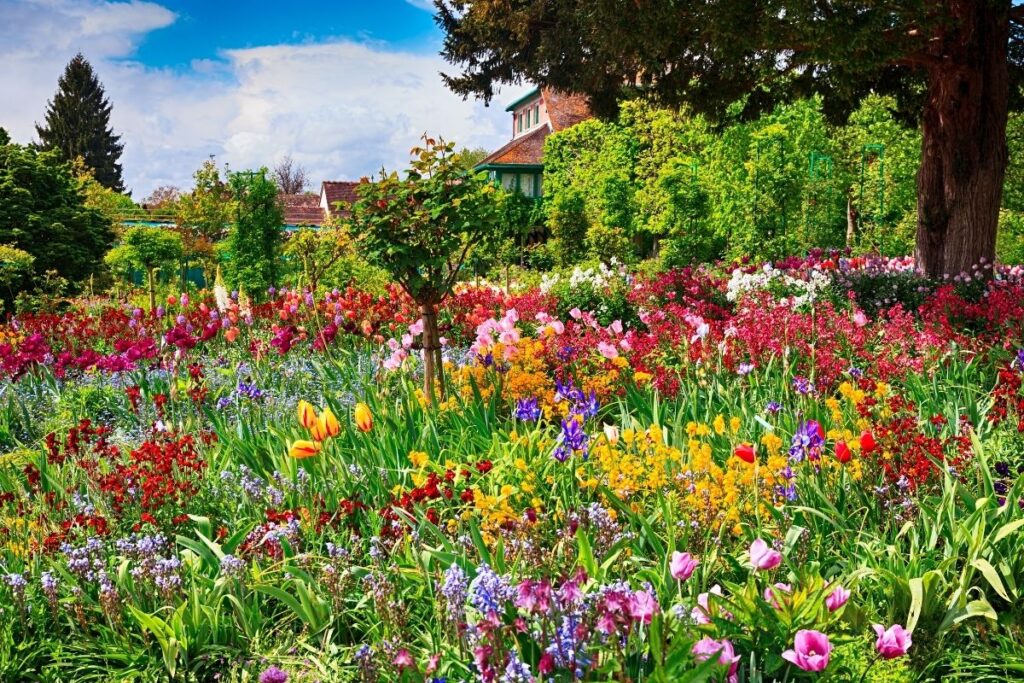Most plants have companions that help them to grow and thrive. But did you know that some plants also have natural pest repellents built in? If you’re looking for plants that repel pests from your garden, these companion plants may be just what you need.
When you are choosing plants to grow in your garden it never hurts to take a look at what you can plant that will help improve your soil, attract pollinators, and repel garden pests so that your entire garden can grow and thrive.
I’ve been gardening as a hobby for several years now, but I never really delved deep into the hows and whys. I just plant what I like to eat and then end up fighting a losing battle with pests and disease.
I actually only very recently learned about the concept of “Companion Planting“. If you don’t know of it either, it’s absolutely brilliant! I saw it on a show about homesteads and how to live a more self-sustaining daily life for yourself and your family.
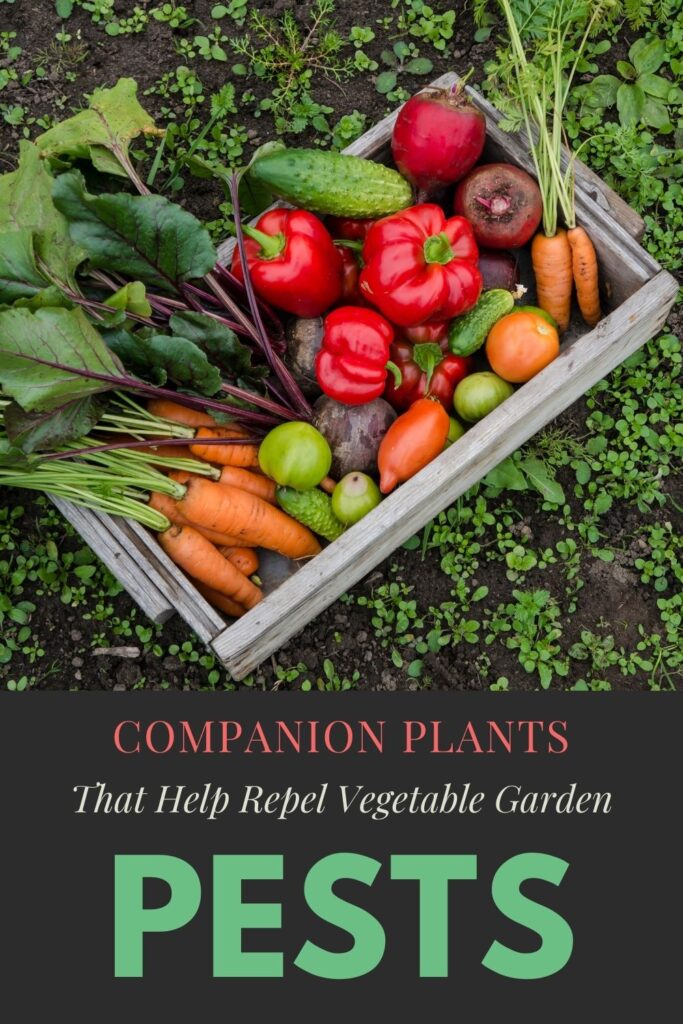
What is companion planting?
Basically, companion planting is the art of grouping different plants together to grow so that they help one another out – either because they have similar nutrient requirements, growth habits, or pest-repelling abilities.
A classic example of companion planting is the Three Sisters trio of plants —maize (or corn), climbing beans, and winter squash. Native American communities took advantage of each plant’s different qualities that helped its neighboring plant.
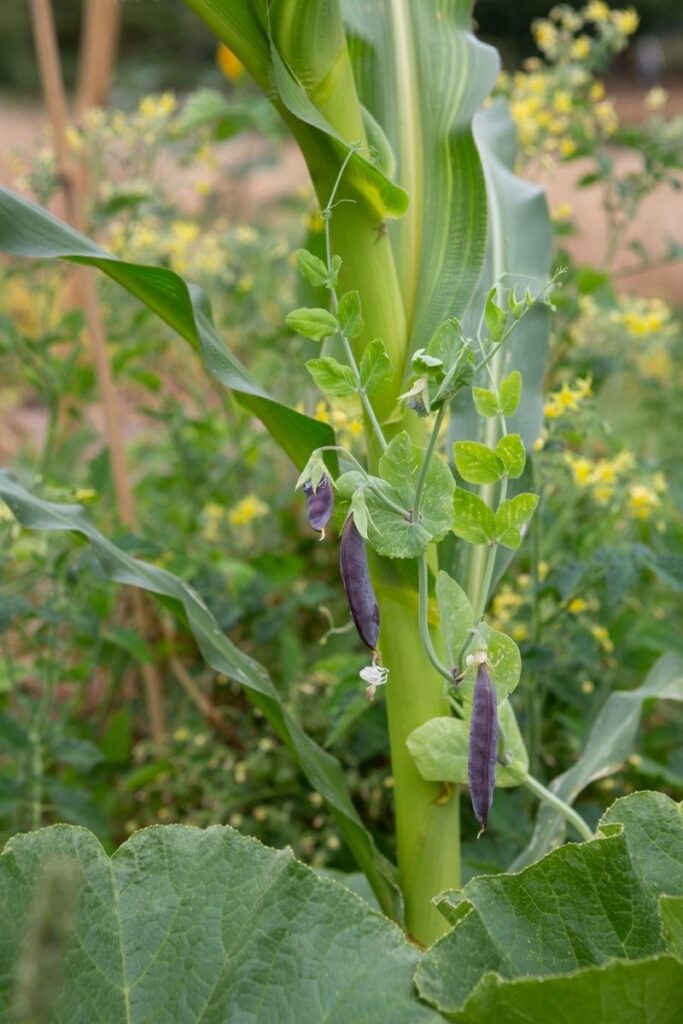
For instance, the tall corn supports the climbing beans which in turn provide precious nitrogen to the soil. The low-growing squash shades the ground to help retain moisture (also known as living mulch) while its big, prickly leaves discourage weeds and pests.
Companion planting isn’t really an exact science and many plants offer more than one benefit to a host of other plants.
But beware, some companion plants also come with downsides and don’t play well with certain other plants (like onions and beans or peas). Just be sure to do your research of the proper dos and don’ts of companion planting and you’ll be just fine!
Read on for our quick and dirty companion planting guide with tips on what plants to incorporate into your next garden and flower beds to help repel pests. You may also want to check out our Guide to the Best Companion Herbs For Gardening.
Marigolds
Marigolds are one of the most useful flowers to grow in your garden. These beautiful flowers are perfect for growing around your garden beds, in pots near entertainment areas, and in nearly any area you want to encourage pests to stay away from. From mosquitoes to rabbits, marigolds are a great repellent for your garden.
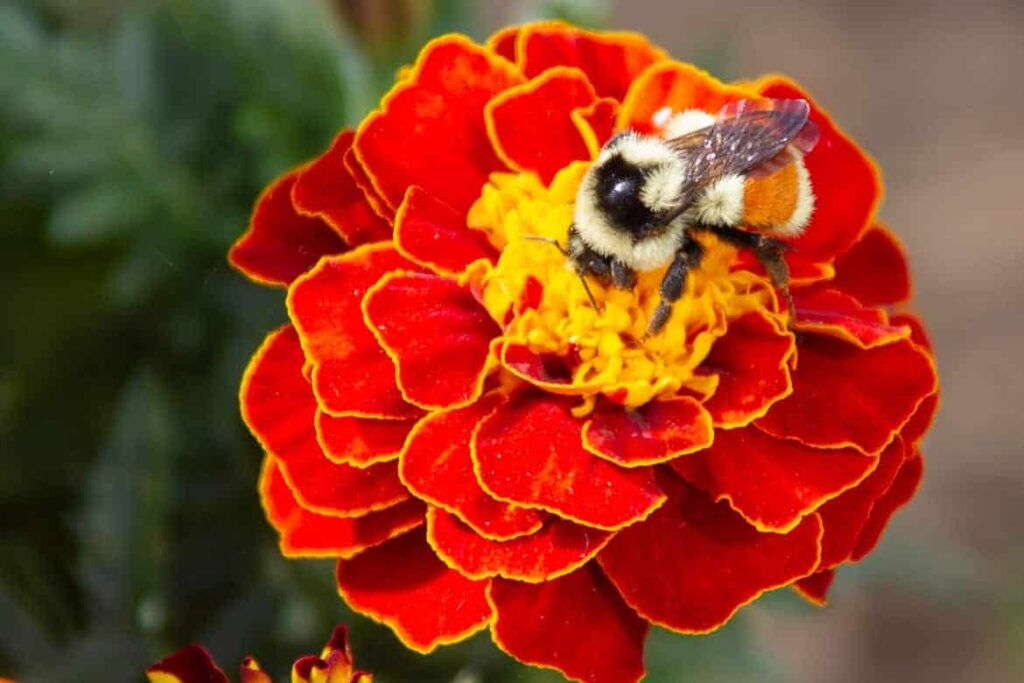
Marigolds produce a strong smell which helps to mask the attractive smells of surrounding vegetables. Thanks to a phototoxin called alpha-terthienyl, Marigolds are also great at repelling bugs like Mexican bean beetles, squash bugs, whiteflies, aphids, and many other pests. As a double bonus, Marigold roots are known for keeping nematodes at bay.
We like French Marigolds and recommend you plant them near your tomato, pepper, and potato plants for the best benefits.
NOTE: They do however attract spiders and snails so you should be mindful of this in your garden while you work. I like to plant Marigolds in separate containers and place them around the vegetables I’d like to protect. This way I can use the benefits of Marigolds, but at the same time keep the pests at bay.
Did you know that slugs and snails are attracted to yeast? Many gardeners use old beer to make slug and snail traps!
Lemongrass
Lemongrass is a great herb for growing in your garden. This herb can be used for making tea or cooking stir fry and is essential when making Thai recipes. While being useful in the kitchen, lemongrass is a valuable pest repellent that will help protect your garden from aphids and outer unwanted insects.
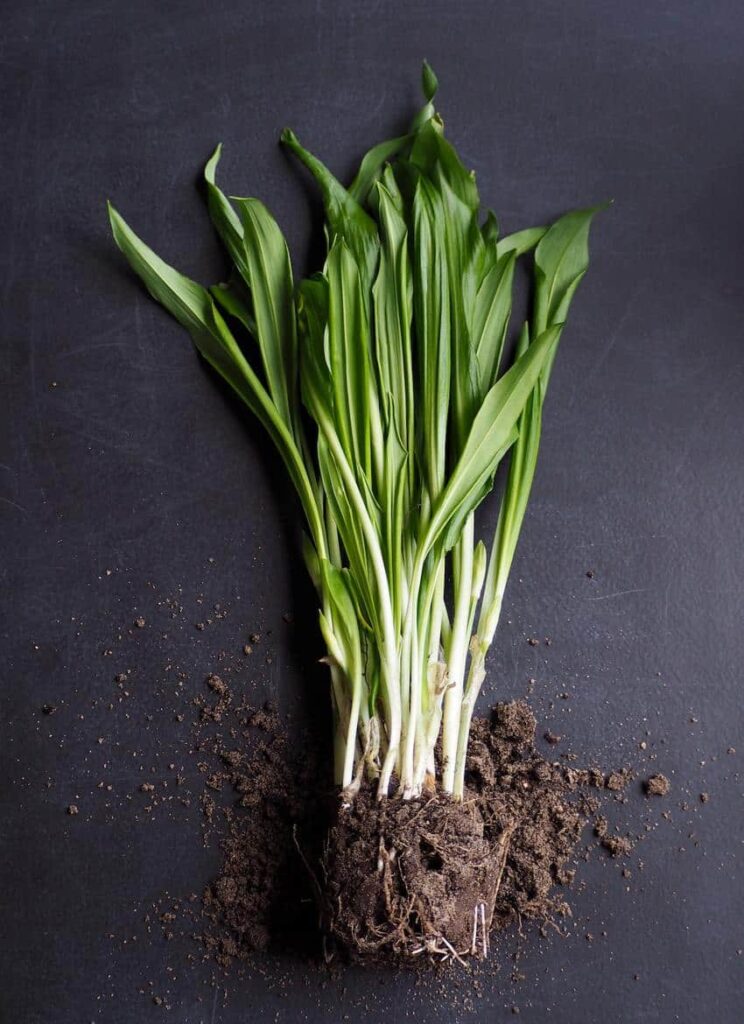
You can buy lemongrass seeds, but if you find it in your local market or grocery store, it’s also one of those amazing veggies you can just plant and regrow from the part you would normally throw away! I did this with my store bought green onion and lemongrass 2 years ago and haven’t needed to buy any more since.
Onions and garlic are also helpful pest deterrents (spider mites, Japanese beetles, and aphids), but be sure to keep them away from your bean and pea plants as they are thought to interfere with their growth. I like to plant these close to and around my tomato plants.
Echinacea
Echinacea is a common herb is grown for its powerful immune-boosting benefits and is commonly served as a tea. This flowering herb is great for attracting bees and butterflies to your garden that will in turn help to pollinate your plants and improve the yield of your garden overall.
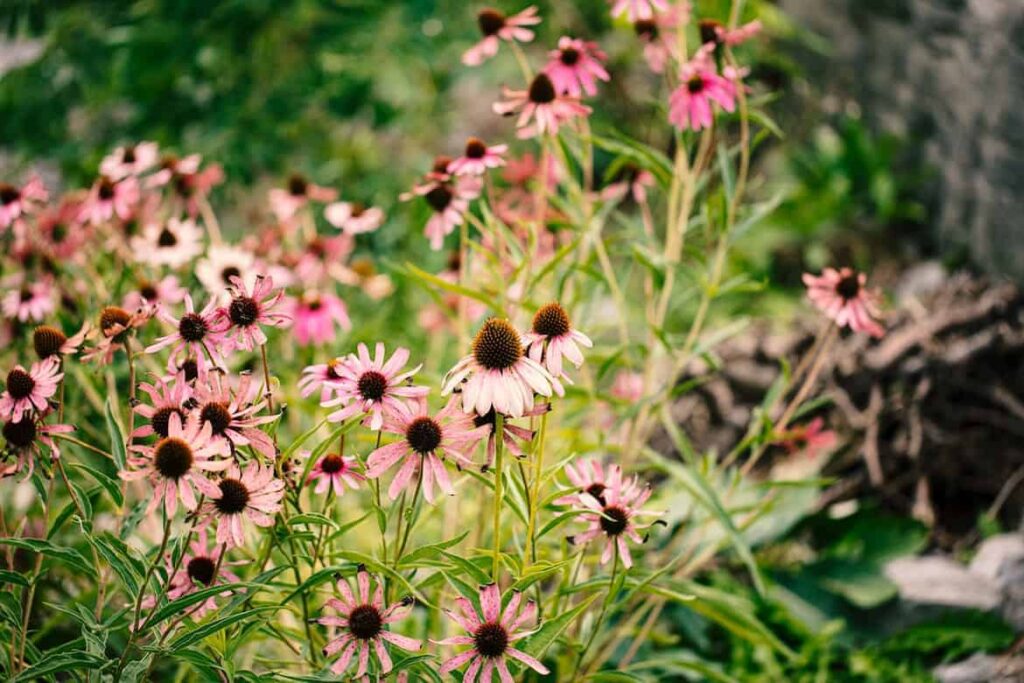
This is a perennial so it is better kept in pots or a bed designated for perennials near your regular vegetable garden.
TIP: If you do plant flowers directly into your garden bed, when their season is over simply cut the stems and leave the roots to decompose and add nutrients to your soil.
Catnip
Even if you don’t have a furry friend, you may want to consider mixing in some catnip plants throughout your garden. It will help keep ants and beetles away, but also act as a living mulch to conserve moisture.
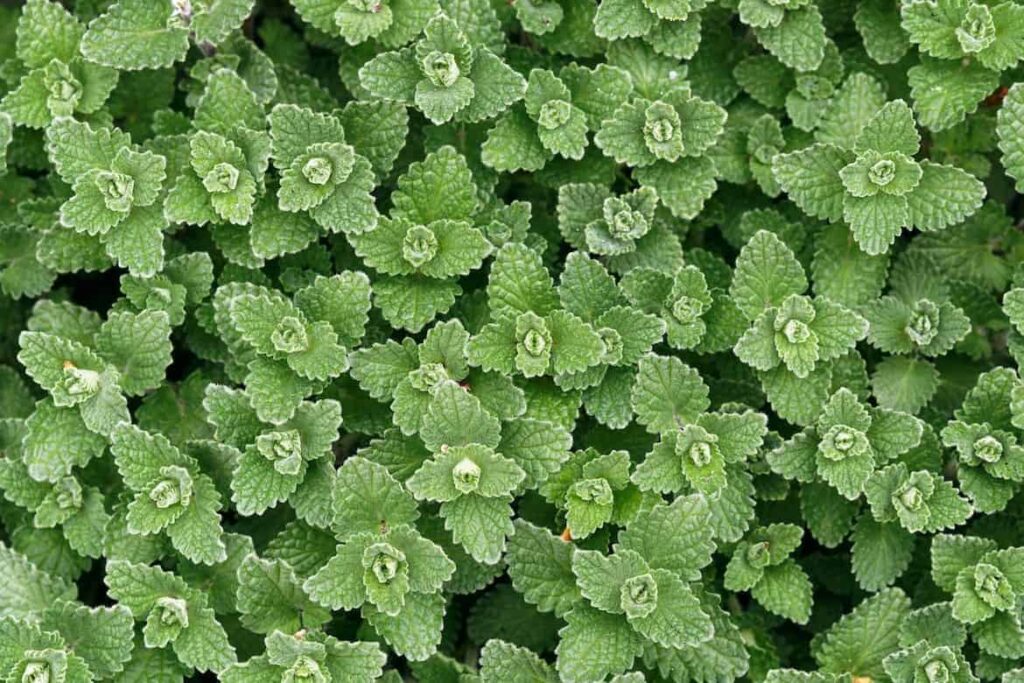
Humans can also use catnip for a variety of medicinal uses.
Geraniums
If your garden or yard tends to be plagued by pesky mosquitoes, try making a natural big barrier by planting these colorful flowers.
A natural source of citronella oil, geraniums repel mosquitos and also help keep cabbage moth worms and leaf hoppers at bay. Geraniums are also known to repel earworms, cabbageworms, and Japanese beetles and make a great companion plant for tomatoes.
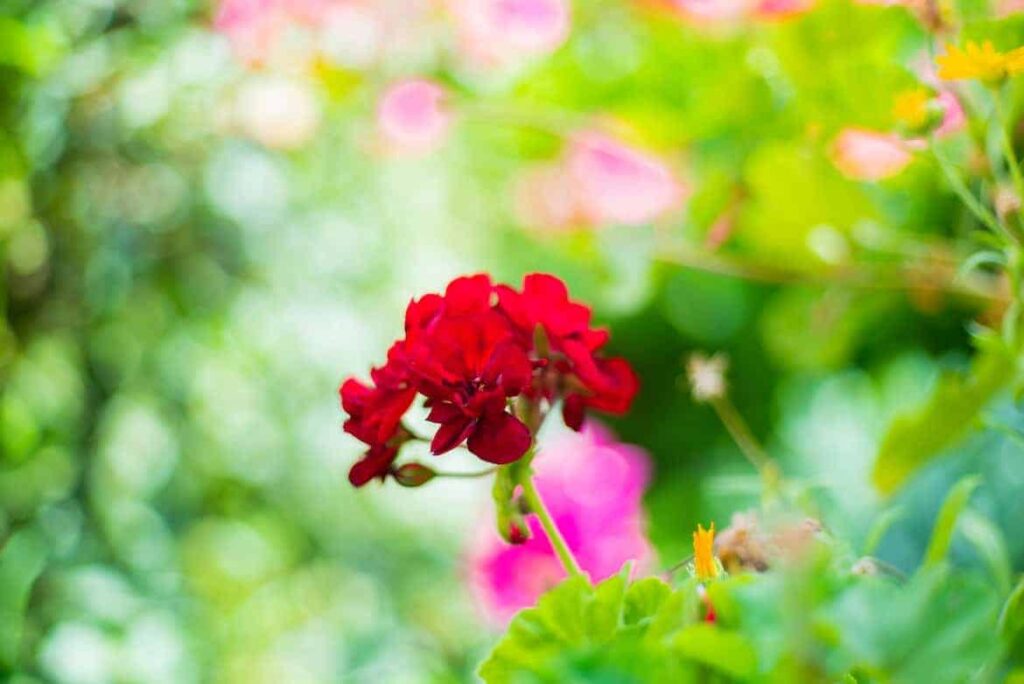
Because geraniums have such a powerful scent, they can also help mask the scent of tasty vegetables, like in the case of tomatoes and the pesky tomato horm worm. The moths tend to fly right on by, instead of laying their eggs on your precious tomato plants!
More Gardening Tips and Tricks
- Plants That Attract Butterflies
- Best Ways to Improve Your Garden Soil
- 11 Easy to Grow Flowers for the Terrible Gardener
- Small Space Gardening Ideas: Go Vertical!
Thank you for letting me share some of my favorite products and finds with you – I appreciate your support by shopping through these affiliate links!

